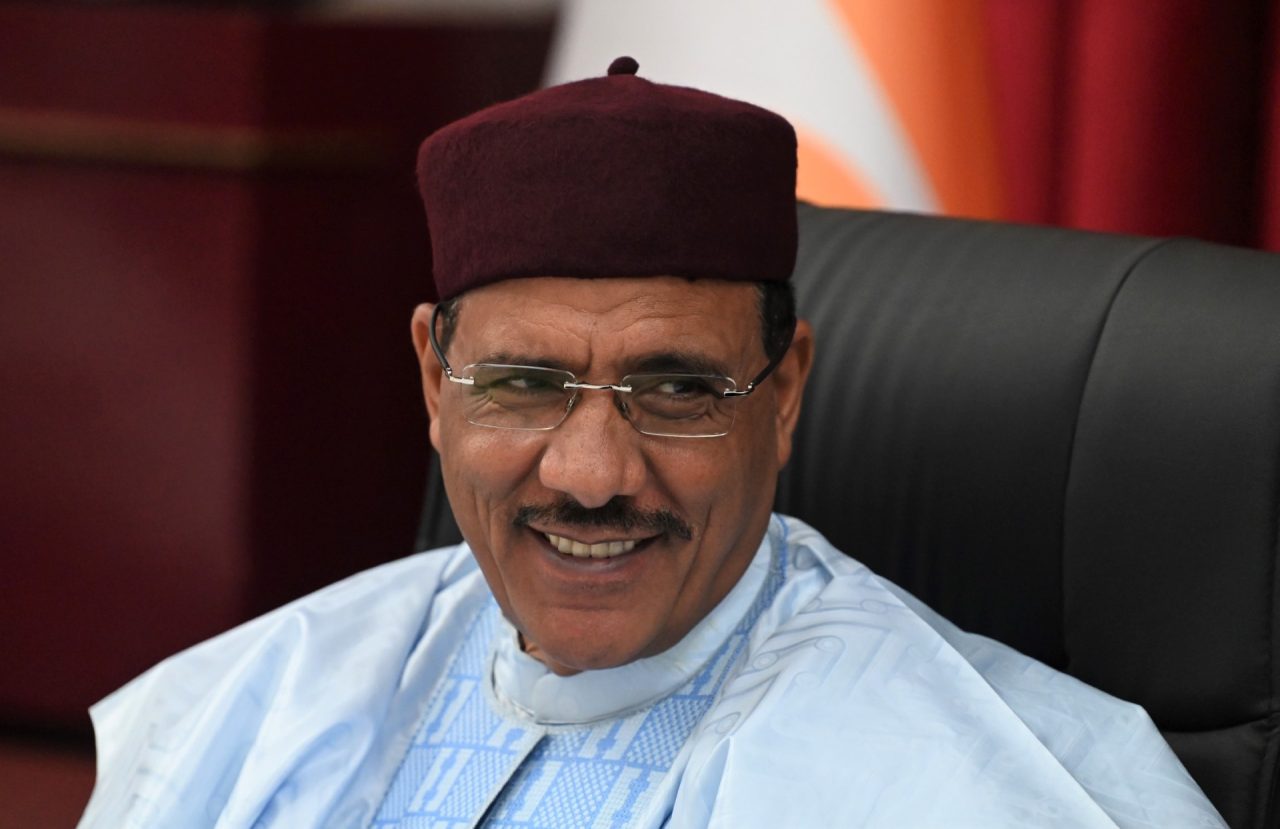
Niger Republic has been in the news for obvious reasons. Military officers, in a palace coup, sacked the democratically elected president, suspended the constitution and took over the reins of power. This has triggered chains of reactions from regional leaders and created tension within the country and the entire West African region. Diplomatic experts believe that the matter should be handled in such a manner as to avoid conflagration, Bridget Chiedu Onochie (Abuja), Ngozi Egenuka and Silver Nwokoro (Lagos) report.
Until last week’s coup in the Republic of Niger, West Africa’s successful coup in Burkina Faso on 24 January 2022, renewed unease about coups “returning” and democracies “dying” in Africa. The attempt in Guinea-Bissau, too, recalled the first decades after independence, when coups were rampant.
The return of coups despite a neoliberal democratic programme inaugurated in Africa, after the Cold War, raises concerns about the governance and the future of democracy in many African countries.
While coups are rarely a solution to bad governance, the trend echoes the need for reassessment of the neoliberal democratic project in Africa.
Indeed, security and diplomatic stakeholders have cautioned political leaders in the West African region on their approach towards managing the crises in the Republic of Niger.
Following the July 26 coup d’etat, which ousted the democratically elected President, Mohamed Bazoum, the leadership of the Economic Community of West African States (ECOWAS), frowned at the development and immediately mandated the military junta to reinstate Bazoum without further delay.
The ECOWAS Authority of Heads of State and Government, arising from an emergency meeting last Sunday in Abuja, handed down sanctions against the military leader, including use of force against the mastermind of the coup, General Abdourahamane Tchiani if he fails to restore power to Bazoom after seven days.
ECOWAS had also, through the President of ECOWAS Commission, Omar Alieu-Touray, who read out the resolutions, ordered the closure of land and air borders between ECOWAS countries and Niger, imposed a ‘no fly zone’ on all commercial flights to and from the country as well as suspended all commercial and financial transactions it had with ECOWAS member States, including freezing of all service transactions such as energy transactions and the country’s assets in ECOWAS Central Banks.
These sanctions were compounded by a similar directive from the continental authority – the African Union (AU), which had also issued a 15-day ultimatum to the military government in the country to reinstate the democratically elected government.
But the military government in Niger, known as the National Council for the Safeguarding of the Country, had last Saturday, issued a stern warning against use of military powers in the country.

The Spokesman of the junta, Colonel Amadou Abdramane, said: “The objective of the ECOWAS meeting was to approve a plan of aggression against Niger through an imminent military intervention in Niamey in collaboration with other African countries that are non-members of ECOWAS, and certain Western countries.
“We want to once more remind ECOWAS or any other adventurer of our firm determination to defend our homeland.”
A second statement was also issued, inviting citizens in the country’s capital to take to the streets from 7 a.m. local time to protest against ECOWAS and show support for the new military leaders.
In view of these and other likely Western interests that may fuel the crises and leave the region with worsening socio-economic implications, experts have urged ECOWAS leaders to tread with caution.
A security expert and former Director, State Security Service (SSS), Mr. Mike Ejiofor, warned that military intervention against Niger should be considered the last option.
Blaming the situation in the country on the penchant of African political leaders for manipulating electoral process or the constitution to extend their tenure in office, he canvassed a subtler means of restoring normalcy than repetition of waste that may accompany the deployment of the regional multilateral armed force – Economic Community of West African States Monitoring Group (ECOMOG).
Noting that only good governance can stem the tide and serve as an antidote to military interventions in the whole of Africa, he admonished ECOWAS to be very diplomatic in handling the situation.
Ejiofor specifically urged Nigerian President Bola Ahmed Tinubu to tread with caution to avoid a proxy war with Russia or play into the hands of Colonial masters.
In his reaction, Nigerian retired Ambassador, Joe Keshi, believes that incidents of coups can be isolated.
He noted that most of the affected countries are in the Sahel Region, where bad governance had led to harsh economic situations.
He said: “Beyond the leadership issue, which is very critical, there is the economic issue. Of course, there is a poverty issue. The military always checks the mood of the people before they strike.
“In the 1960s, it was fashionable for military rule, not just in Africa but other parts of the world. I remembered very clearly that a number of intellectuals began to justify military rules in developing countries, and that is where the whole issue of strong leaders came about, and in fact, there is a classical book on that titled “The Men on Horseback” stating reasons coups were taking place.
“There are a couple of countries where you could say that there is foreign interference. It was simply because coups became fashionable but today, coups are not fashionable but are still happening. When you look at areas where coups are happening critically, they suffer from insecurities and bad leadership,” he said.

Amb Keshi suggested that the military should be persuaded to allow democracy to take its full course, adding that civilians also violate the constitution deliberately to remain in power.
His words: “It is all about justice, equity and fairness from the side of the government. Those who want to come to equity should come with clean hands. You have people who have tampered with the constitution to extend their tenures; you have people who rigged an election that are very contentious such as Nigeria and Sierra Leone. Some have suppressed all oppositions and have stayed over 20 years in power.
“So, it is an illusion when you say ‘we will no longer allow a coup.’ How do you solve it? And the fact that a coup happened a few days after the statements was made proved that it is an illusion.”
According to him, the way forward is to work with the people to restore constitutional order and not by threatening them.
He argued that there is no way troops can be mobilised within seven days. That, he said, should not have been included in the communique in the first place.
Secondly, Keshi wondered why the regional leaders threatened to impose sanctions, without consulting with Cameroon and Mali. He reasoned that the two countries may support Niger.
“Our military is seriously over-stretched due to the issue they are battling in Nigeria and they should not be stretched any more.
“They should use Mali and Chad to have a discussion with the coup plotters in Niger rather than threatening military action. Even the person you are sending to talk to them also came to power through a military coup. So, you can see the whole blunders that our leaders are committing and for those Nigerians who are advocating military intervention, with all due respect, I am not too sure that they are serious,” Keshi said.
Also speaking, an Associate Professor, Nigerian Institute of International Affairs (NIIA), Dr. Joshua Bolarinwa, felt that Nigeria cannot afford to be unresponsive as it has direct border relations with Niger.
“Niger is also seen to have strategic relations with Nigeria because the multinational Joint Task Force (JTF) of the Lake Chad Basin Commission and Authority is headquartered in Niger. So, this would affect the fight against insurgency and terrorism, bilateral, trade, security and multilateral ECOWAS relations between Nigeria and Niger.”
According to him, since 2020, there have been six coups in Africa, one in East Africa, four in West Africa and one in Central Africa. These countries that have experienced coups are all vulnerable states with high degrees of poverty, leadership crisis and weak institutions.
He added that if ECOWAS accepts the coup in Niger, it will create opportunities for other unstable nations in the region to embark on coups.
Also, a Professor of Political Science, Lagos State University (LASU), Kayode Soremekun, feared that the crises in Niger may deepen the instability in West Africa, especially where there are already pockets of violence.
He added: “As long as we have situations where there are no laid down protocols and procedures for change of government, there will be this kind of upheaval until these countries develop.”
He emphasised that in the case of West African countries, there are also external dynamics at play, alleging that France, Russia and America are in various ways, contributing to the instability in the region.
“And their big neighbour, Nigeria, is not well placed to assert herself as a regional power. In a context where you have a regional power that can come with a scold, these kinds of things might not happen easily. Even the regional power is grasping for stability too”, Soremekun added.
In his reaction, a lawyer and senior partner, LawChest, Chijioke Ifediora, blamed the coup on political and security situations in the country.
“On security, Niger has been instrumental in the fight against insurgents with several successful joint operations with the Nigeria Military to end insurgents in the North East. Since the new leader of Niger had complained in his speech that the current security approach has failed in whatever context or measure he may have used as his yardstick, he may be opportune to offer potent strategies to improve the war against insurgents.
“The other issue which is political is tied to the socio-economic conditions of the people of Niger, which is particularly about the policies and efforts of the government to improve the life and living conditions of people.”
“This issue resonates with the majority of the population who can be seen in several footage protesting outside the Niger National Assembly, burning the party office of the leading political party, allegedly assaulting corrupt government officials and protesting against external partners or foreign countries who the people believe their long support has had no impact over the years.”
According to Ifediora, the latter is not different from what most West African countries are facing. One of the significant things about the coup is the public acceptance.
If the ousted President Mohamed Bazoum was so popular and enjoyed acceptance from the people, he noted, this would have been evident from the reactions in Niger by the people. “But reverse is the case”, he stated.
He added that democracy in the Sahel Region and West Africa has not lived up to the very definition of its meaning as elections are either marred by unprecedented rigging or violence, while politicians abuse public office or embezzle state funds without repercussions.
He, however, warned that any military intervention by ECOWAS will destabilize political power in the country, and will definitely affect neighbouring countries like Nigeria and Chad.
This, he believed, will result in an armed conflict that may likely see foreigners migrating into Nigeria through its borders with Niger, adding that the challenges confronting Sahel region was the resultant effect of the fall of Libya.






